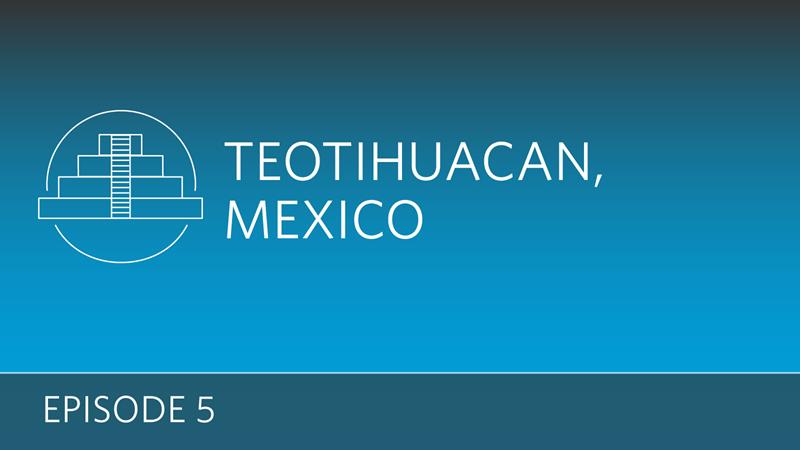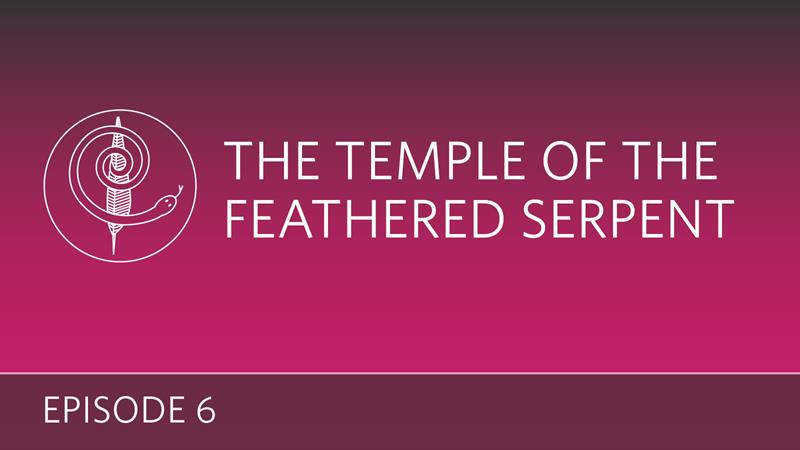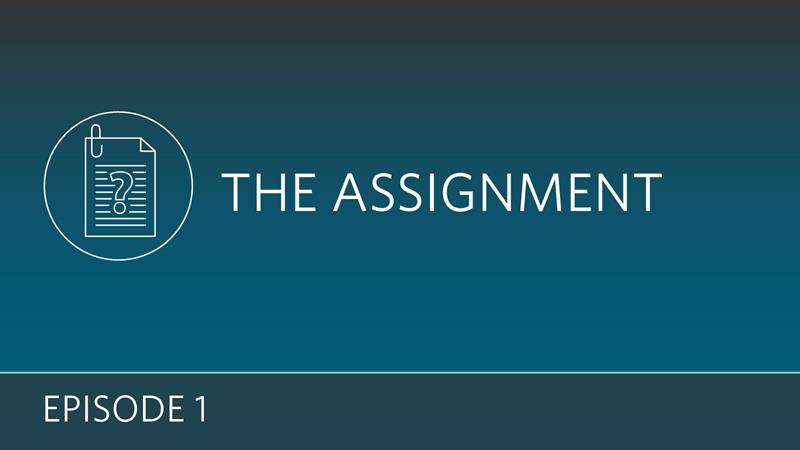Virtually Anywhere Episode 3
How difficult was this activity?
ORIn this episode Paul and Geeta travel to China to see the Terracotta Army using the mysterious Professor's virtual reality machine.
If you're using Internet Explorer 9 or 10, please use another browser such as Chrome or Firefox to listen to Virtually Anywhere.
Transcript
NARRATOR: Geeta and Paul are final year archaeology students who don't get along very well. They are working together on their final piece of coursework, and while arguing over which location to study, they are suddenly contacted by a mysterious character called the Professor, who says that he can help them. The Professor shows them a virtual reality machine, called Virtually Anywhere, which can transport people to anywhere in the world. They all plug into the machine, turn it on and virtually travel to the Terracotta Army in China.
PROFESSOR: Haha! It works! This is exactly what I wanted to happen! Anyway, this ... is the Terracotta Army!
PAUL: What's going on? It's ... It's like I'm really here!
GEETA: It's ... It's amazing!
PROFESSOR: Well, I did tell you that it would all feel very real.
GEETA: You did, I just didn't expect it to feel ... this real. So where shall we go first?
CHANGYING: Hello! Good afternoon, I am Changying. I will be your tour guide today and show you around the Terracotta Army - the protectors of the tomb of Qin Shi Huang - the First Emperor of China!
PAUL: This is so cool!
CHANGYING: Are we ready to begin? Good! Then follow me!
GEETA: Professor, this all feels incredibly real. How does it work?
PROFESSOR: Geeta, the tour has already begun - it would be rude to interrupt our tour guide.
GEETA: So ... is she actually a computer then?
PROFESSOR: Geeta! We can talk about this later!
GEETA: But she's so lifelike. I just don't get it.
PROFESSOR: Yes, I know, but you have an essay to write and we really should be listening to Changying, shouldn't we?
PAUL: Yeah come on Geeta, just enjoy it - this is brilliant!
CHANGYING: So, let's stop here for a moment. The Terracotta Army was discovered in 1974 by local farmers, and experts believe that there are over 8,000 soldiers here. Each warrior is a life-size model and their average height is about 1.7 metres.
PAUL: That's how tall I am! They look smaller than that. Hang on, let me check - I'll jump down and have a look! ... Yes it's true! They are all the same height as me!
CHANGYING: Please come back here immediately! It is forbidden to touch the statues!
PAUL: OK - sorry!
GEETA: Paul! Stop acting like an idiot! Remember we're here to learn and not mess about - plus you promised me you'd try your best!
PAUL: OK, OK! I'm just having a bit of fun - it's not like any of this is actually happening.
PROFESSOR: Can I just interrupt for a moment - now, my young friends are very excitable, and ...
PAUL: Ow!
GEETA: What's wrong?
PAUL: An insect just bit me ... but ... that really hurt! Professor, how can that happen?
PROFESSOR: As I've already said, Virtually Anywhere is almost completely lifelike. Now Changying, I apologise for all of this, please continue with the tour.
CHANGYING: As I was saying, one of the most important facts about the warriors is that each statue has its own unique design - every single one is different! That's why the army took about 40 years to build and it's so huge in scale - if they were standing shoulder to shoulder, the whole army would take up about 1,700 square metres!
GEETA: That's absolutely fascinating! And how many workers built the army?
CHANGYING: We can't be absolutely certain, but approximately 700,000 people worked on both the army and the tomb.
PAUL: Wow, that's a massive number of people. So, where is this tomb that the warriors are protecting then?
CHANGYING: Well, that's another topic really - you see the Emperor's tomb is about a mile away from here to the east. What's inside the tomb is a great mystery, as most of what we know about it comes from the ancient texts and legends. You see the tomb has never been opened.
GEETA: It's never been opened? Not even by archaeologists?
CHANGYING: No. Until technology has improved enough to open the tomb without damaging any of its treasures, it will probably remain closed. No one has been inside it for thousands of years.
PAUL: You know what? I've just had a brilliant idea.
GEETA: I think I've had the same one!
PAUL: Professor? Can we use Virtually Anywhere to ...
GEETA: ... go inside the tomb of the First Emperor?
PROFESSOR: Why not! One moment, let me just get the computer remote control out ... make a few minor adjustments to the program ... one second. Thank you Changying, and goodbye!
CHANGYING: Goodbye?
PROFESSOR: Yes, goodbye! Now, Paul and Geeta - hold on tight!
PAUL: Hold on tight to what?
CHANGYING: What? Where did they go? I was just about to tell them all about the booby traps in the tomb.
After listening, do the learning activities to practise the words you've heard.
Try these activities next

Virtually Anywhere Episode 5

Virtually Anywhere Episode 6


